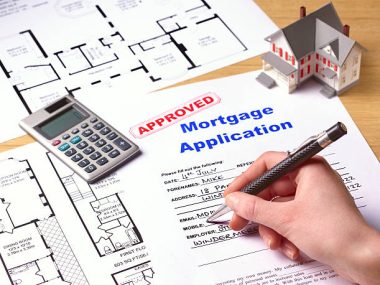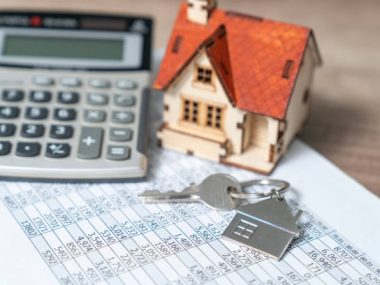What happens to your mortgage during a recession? In the realm of personal finances and real estate, few events can have as far-reaching and intricate consequences as an economic recession.
A recession, characterized by a significant decline in economic activity across various sectors, often triggers a domino effect that reverberates through financial markets, employment rates, and the stability of households.
Among the myriad financial concerns that individuals face during these challenging times, one question looms large for homeowners: What happens to your mortgage during a recession?
The impact of a recession on mortgages is a multifaceted issue that touches on interest rates, housing prices, homeowner equity, government interventions, and personal financial strategies.
Whether you’re a first-time homebuyer, a seasoned homeowner, or someone aspiring to enter the real estate market, understanding the dynamics that unfold during a recession can empower you to make informed decisions about your mortgage and overall financial well-being.
This article delves into the intricate relationship between economic downturns and the housing market, shedding light on the ways in which recessions can influence mortgage terms, payments, and risks.
Also Read:
What Is an Open-End Mortgage? (All You Should Know)
What Is a Mortgage Banker? (All You Should Know)
What Happens to Your Mortgage During a Recession?
During a recession, the landscape of mortgages undergoes significant shifts with repercussions for homeowners.
One key aspect impacted is interest rates.
Central banks often lower rates to stimulate the economy, which can lead to reduced mortgage rates, potentially lowering monthly payments.
However, obtaining a mortgage might become more stringent due to tighter lending standards as banks become cautious.
The recession’s effect on housing prices is pivotal. A downturn can lead to decreased property values, jeopardizing homeowner equity.
Those who bought at the peak might find themselves with properties worth less than their mortgages.
Consequently, refinancing becomes challenging, limiting options for mortgage adjustments.
Foreclosure rates tend to rise during recessions. Unemployment and financial stress can make it difficult to meet mortgage obligations.
Governments might intervene with foreclosure moratoriums or assistance programs to mitigate this.
Overall, a recession intertwines with mortgages through interest rates, property values, and foreclosure risks.
Homeowners should monitor market trends, explore refinancing before crises deepen, and communicate with lenders if financial strains arise.
Adaptation and proactive measures are crucial for weathering the storm and maintaining a stable mortgage during economic downturns.
Impact of Economic Downturns on Housing Markets
Economic downturns wield a profound impact on housing markets, reshaping dynamics that influence buying, selling, and property values.
Firstly, demand for homes often dwindles as consumer confidence wavers, leading to decreased buying activity.
With fewer buyers, property listings linger longer, potentially pressuring sellers to lower prices.
Housing prices are particularly susceptible to recessionary pressures.
The decline in demand, coupled with potential job losses, can trigger a downward spiral in prices.
Homeowners might face negative equity, where the home’s value drops below the outstanding mortgage amount, making selling or refinancing challenging.
Mortgage lending tightens during downturns. Banks may impose stricter credit requirements, affecting access to financing, especially for first-time buyers.
Additionally, interest rates can become volatile due to economic uncertainty and central bank policies.
Investment properties and new construction also feel the pinch. Investors may hesitate due to uncertain returns, causing rental markets to weaken.
Developers might halt or delay projects, contributing to decreased housing supply.
Overall, economic downturns induce a ripple effect across housing markets, impacting demand, prices, financing, investment, and construction.
Both buyers and sellers must navigate this landscape carefully, being cognizant of shifting dynamics and adopting strategies to adapt to the changing market conditions.
Strategies for Managing Your Mortgage During Recession
Effectively managing your mortgage during a recession requires proactive strategies to safeguard your financial stability.
Firstly, consider refinancing if interest rates drop significantly, potentially reducing monthly payments. Communicate with your lender early if financial strains arise, as they might offer temporary relief options.
Creating an emergency budget can help you allocate funds for essential expenses, including mortgage payments.
Prioritize debt reduction to strengthen your financial position.
If possible, make extra payments towards your principal to build equity and decrease interest payments over time.
Exploring government assistance programs or loan modification options can provide temporary relief for homeowners facing financial hardship.
Staying informed about market trends, employment prospects, and economic forecasts empowers you to make informed decisions.
Overall, a recession demands proactive financial management.
By optimizing your mortgage, cutting unnecessary costs, and staying attuned to available resources, you can navigate economic challenges while preserving your home and financial well-being.
Also Read:
What Is a Mortgage Buyback? (All You Should Know)
How to Remove Escrow Account from Mortgage
Conclusion
In the tumultuous landscape of a recession, the fate of your mortgage hangs in the balance.
Economic downturns intertwine with interest rates, property values, and foreclosure risks, necessitating vigilance and adaptation.
Homeowners must stay attuned to market shifts, explore refinancing possibilities, and maintain open communication with lenders to weather the storm.
Strategic financial planning, from emergency budgets to debt reduction, becomes paramount.
While a recession poses challenges, it also offers an opportunity to reinforce financial literacy, resilience, and adaptability.
Armed with knowledge and preparedness, homeowners can navigate the complex terrain of recessions, ensuring their mortgage remains a stronghold amid economic uncertainty.






